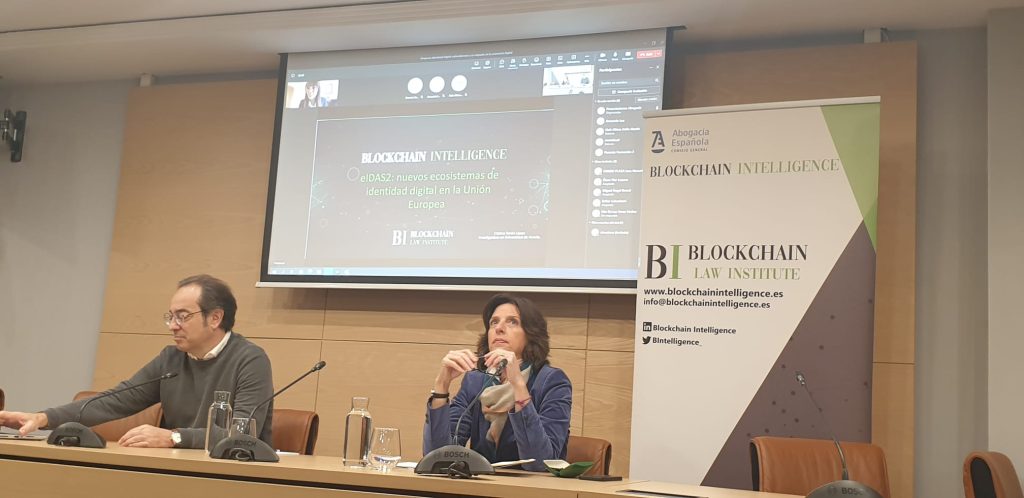
Symposium on the Self-sovereign digital identity and its impact on the digital economy
On February 27 we held the Symposium Self-sovereign Digital Identity and its impact on the digital economy at the Blockchain Intelligence Institute. Just a few days after the European Commission had published the document on the new Architecture and Reference Framework (ARF) of the European Digital Identity Wallet (EUID Wallet) in the EIDAS 2 regulation proposal, we delved into the analysis of the aforementioned framework together with the greatest experts in the field emphasising the successes but also the omissions and challenges that arise around the configuration of the digital identity.
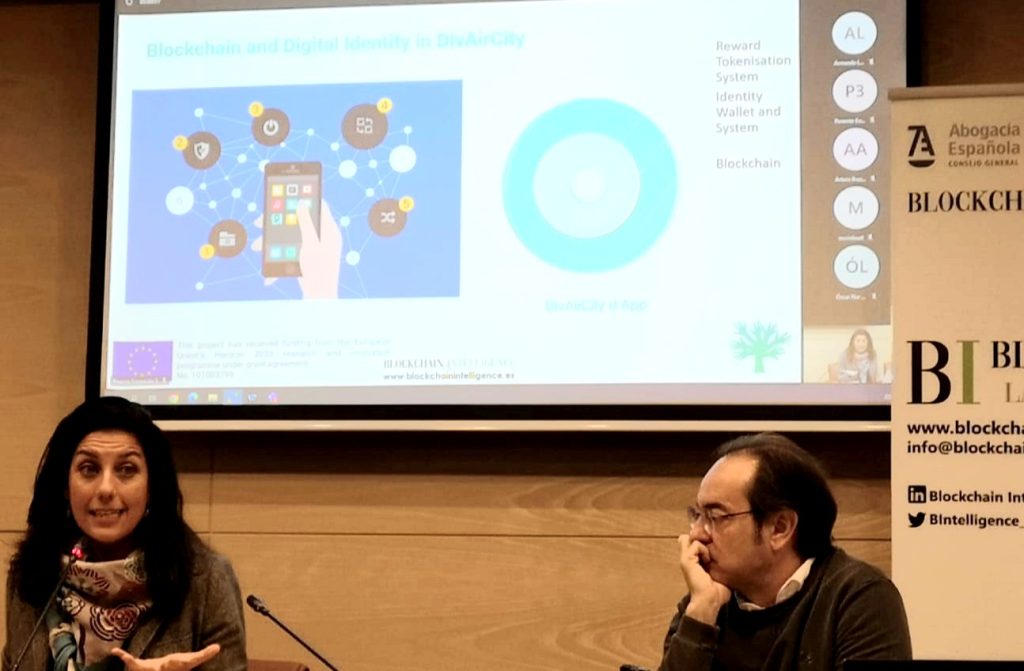
The concept of digital identity has become increasingly relevant considering the numerous possibilities it offers in data control, protection and security. The day was dedicated to all these issues and we used the regular Blockchain Intelligence methodology that combines conceptual analysis and the institutional vision of regulators and supervisors with an analysis of real use cases to get a realistic overview of the situation. Thus we had participants from the European Commission who are developing the European blockchain network EBSI, representatives of the Spanish Agency for Data Protection (AEPD) and the University with representatives of the Industry who have developed or are applying digital identity solutions.
The conference began with a round table discussion on The new European digital identity framework: EIDAS2 Regulation, the ARF and the European digital identity portfolio (EUID Wallet), moderated by Isabel Fernández Torres, with the participation of Cristina Timón López from the University of Murcia, Carlos Pastor from INETUM and Julián Inza from EADTrust.
As the experts mentioned, the aim of the document is to provide a set of specifications needed to develop an interoperable European Digital Identity Wallet (EUID) solution based on common standards and practices. However, despite the framework, there are difficulties and unresolved technical issues that will have to be handled as the implementation progresses. Despite everything, the assessment was very positive and the solution places the European Union, according to experts, in a very advanced situation compared to other international experiences.
In the second round table, moderated by Almudena de la Mata, experts from the European Commission such as José Manuel Panizo, and industry experts such as Lucas Carmona from Teknei and Lluis Ariño from CIO analysed the use of digital identity in the EBSI network. Use cases such as Identity, Student ID and Diploma, which are milestones in the public-private collaboration, received special attention.
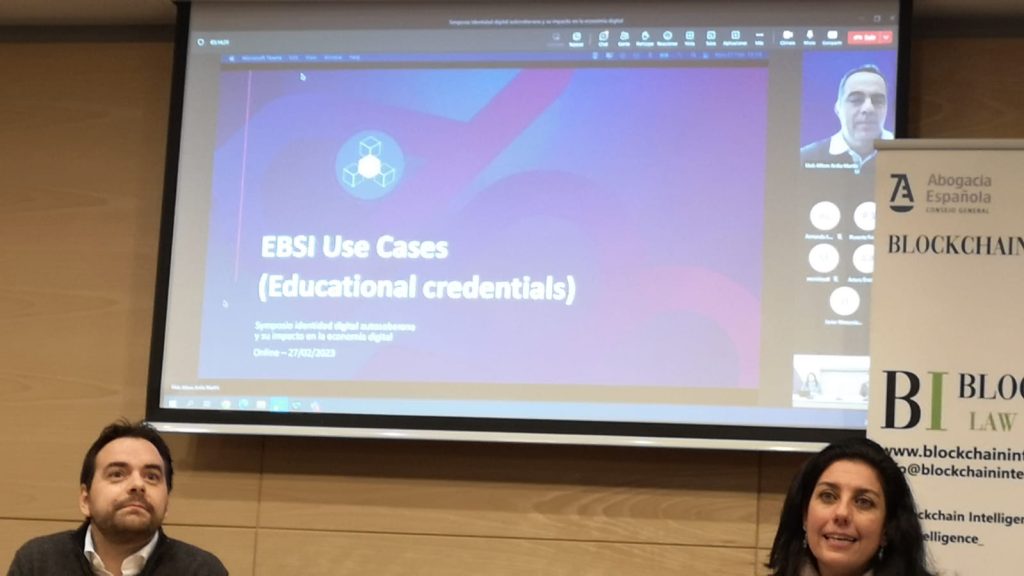
The last round table addressed a problem intrinsically linked to the digital identity: data protection. Arturo Brazal from the Spanish Agency for Data Protection, Javier Ibañez from Alastria and Rafael Eguilior from Procesia participated in the table moderated by our CEO Almudena de la Mata, offering an overview of the issue. A part of this table was dedicated to the practical applications of digital identity and its impact on the public and private sectors, with experts presenting their projects and explaining how data protection works for them. Carlos Pastor from INETUM explained the use case of Dalion, a digital identity management reference project based on blockchain, which gives each person a complete control over their data. Almudena de la Mata explained DivAirCity, a pioneering project whose objective is to contribute to the sustainability of 5 cities in Europe using blockchain technology. Oscar Flor, from Wise Security Global, spoke about its application already in use in the football sector (with the Spanish Football Federation and the Cádiz Football Club).
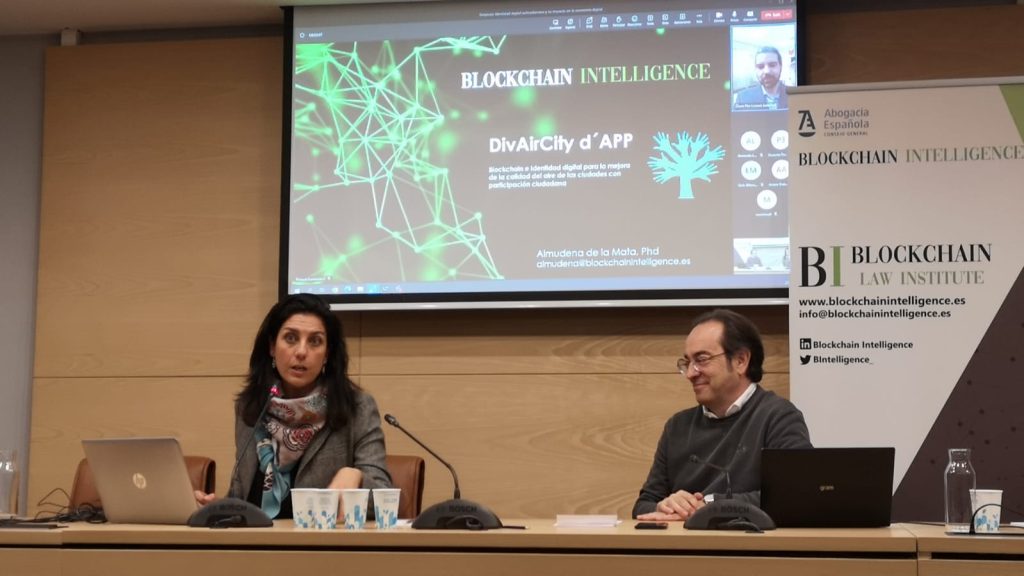
Each of the tables was followed by important debates on the current situation and the issues to be addressed for the successful implementation of digital identity. In this sense, they raised important questions such as the impact it will have on the economic models based on the exploitation of data as the new digital identity models can reduce access to this data. Issues related to cross-border activity and control over the activity of minors were also raised. The relationship between the evolution of digital identity and digital money (CBDC, stable coins and cryptocurrencies) and their impact on the new digital economy and society was also discussed.
The symposium took place at the General Council of Spanish Lawyers and is part of the Research Project “the digitization of financial markets” directed by Isabel Fernández Torres (Titular Prof. of the Complutense University of Madrid) and of which Blockchain Intelligence is a integral part. The collaboration between the people and Institutions mentioned above is an example of the synergies and advances in research. The project, which received funding from the Ministry of Science and Innovation, was designed to be at the forefront of the debate and promote a close dialogue between industry and academia.
You can watch the recording of the symposium here.
Agenda
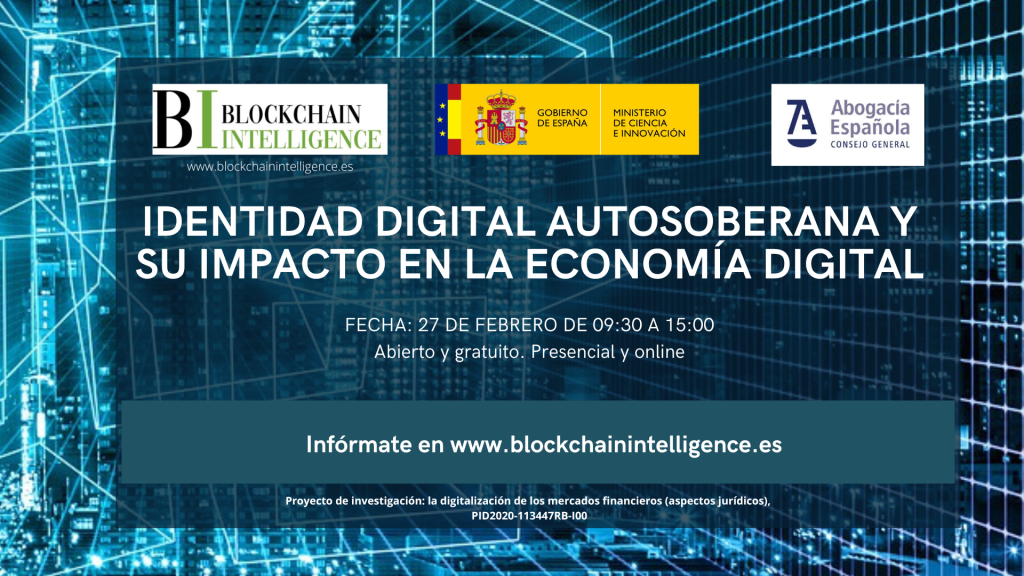
9:30 Welcome. Almudena de la Mata/Isabel Fernandez Torres.
9:45-10:45 The new European digital identity framework: EIDAS2 Regulation, the ARF and the European digital identity portfolio (EUID Wallet).
Moderator: Isabel Fernández Torres
• Maria Cristina Timón López, University of Murcia.
• Julián Inza, President of EADTRUST.
• Carlos Pastor, Director of Digital Strategy at INETUM.
Coffee break: 10:45-11:30.
11:30-12:30 Use of digital identity in the EBSI blockchain network
Moderator: Almudena de la Mata
José Manuel Panizo, European Commission.
Digital identity use cases and their impact on industry and public services.
• EBSI Conformant Wallet versus EUDI Wallet, Lucas Carmona, Director of Digital Identity, Teknei.
• University Certificates EBSI, Lluis Ariño, Convenor Diplomas UC-EBSI, CIO.
12:30-13:45 Digital identity as a tool for data protection.
• Javier Ibáñez, ICADE, ALASTRIA.
• Mar de las Heras, Procesia.
• Arturo Brazal Aragón, Head of the Technological Innovation Division of the AEPD.
Digital identity use cases for privacy protection.
• Dalion, Carlos Pastor.
• DivAirCity Project, Almudena de la Mata.
• Wise Security, Oscar Flor.
NETWORKING
PROYECTO DE INVESTIGACIÓN: LA DIGITALICIÓN DE LOS MERCADOS FINANCIEROS, PID2020-113447RB, IP.I.FERNANDEZ TOR
The next 28th edition of the courses by Blockchain Intelligence and the General Council of Spanish Lawyers starts on April 17. More information is here.
